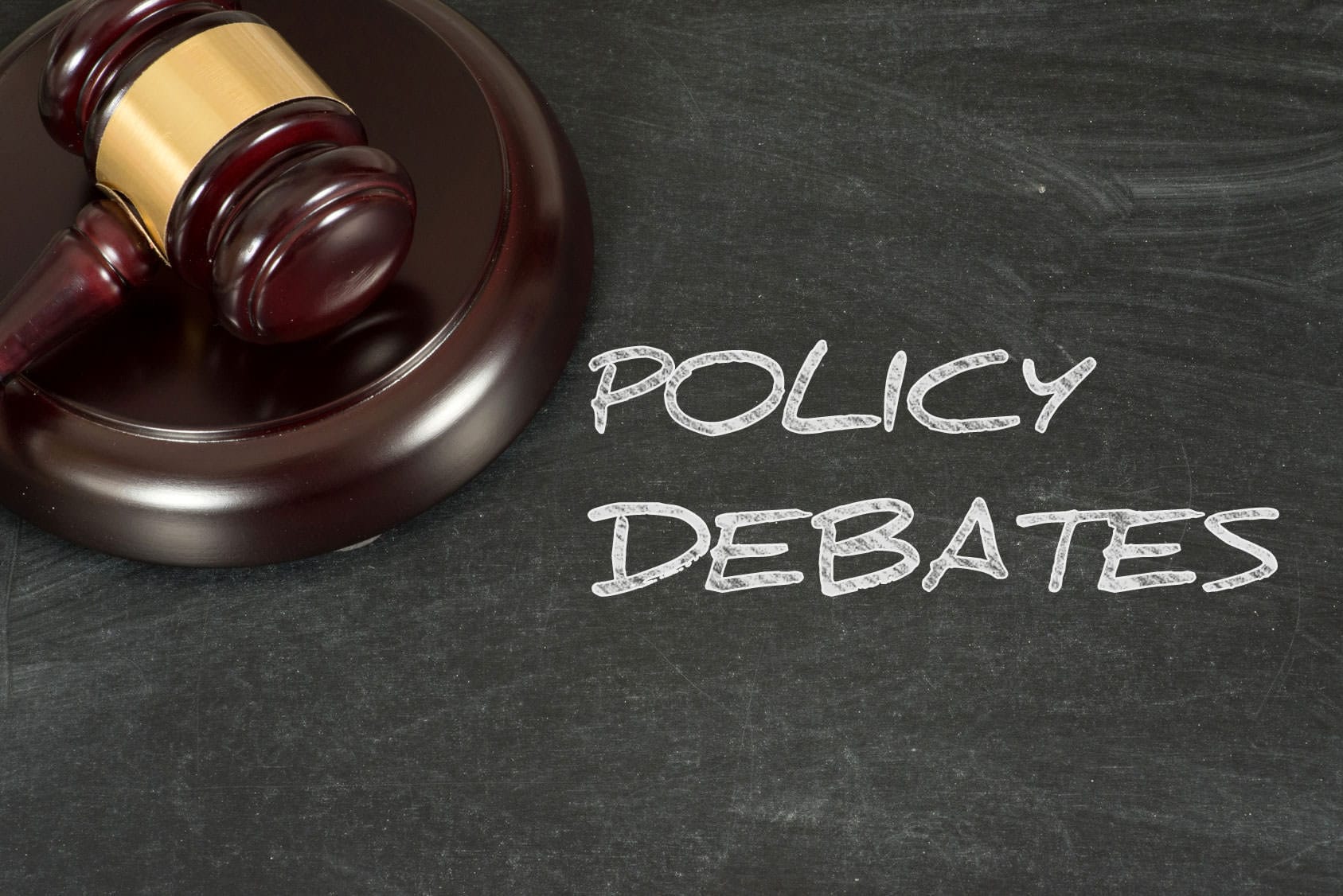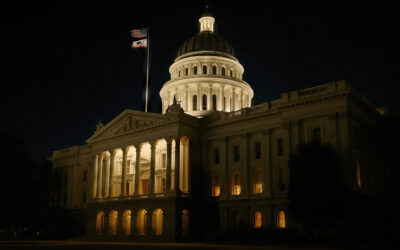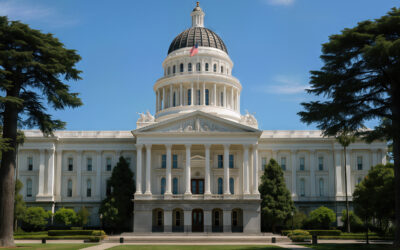- Legislators have introduced more than 2,300 bills this year, of which, more than 650 bills address issues of potential concern to educational leaders.
- Key issues include gun safety, medical cannabis at schools, homeschooling, and the future of LCFF and CTE funding, among many others.
Recently the deadline passed for Legislators to introduce new legislation in 2018. Since late December, lawmakers have introduced 2,314 bills. Of those, our team has identified 662 as addressing issues of potential interest to school officials.
A complete list of these new education-related bills, sorted by broad category, can be found here.
We have also identified some key themes in legislation. It comes as no surprise that some of the most high-profile legislation centers around recent events in California and around the nation. The following (in no specific order) is a review of some of the key policy debates emerging before the Legislature in 2018:
-
Guns and School Safety
In response to the recent school shootings in California and other parts of the country, legislators are responding with various proposals related to guns and school safety. Among these proposals, two bills of particular interest address campus safety.
- AB 1747 (Rodriguez) – School safety plans. This bill would require the schoolsite council to consult with other first responder entities in the writing and development of the comprehensive school safety plan and would require the comprehensive school safety plan and any updates made to the plan to be shared with the law enforcement agency and the other first responder entities. The bill would require tactical responses to criminal incidents to include procedures related to individuals with guns on school campuses and at school-related functions.
- AB 2067 (Gallagher) – School safety: armed security guards. Would require a school district to hire or contract with at least one armed security guard, authorized to carry a loaded firearm, at each school of the school district.
-
Homeschool Affidavits
The Turpin case in Perris, California (Riverside County), alleges years of neglect, abuse, and torture of 13 children by their parents while enrolled in a homeschool. Currently, there is virtually no state oversight of homeschools in California.
Current law requires a person, firm, association, partnership, or corporation offering private schooling to annually file an affidavit with the State Superintendent, setting forth specified information relating to the school. Once the affidavit is received and processed, there is no requirement that the state oversee the welfare of children enrolled in those schools.
The Turpin case has prompted at least one substantive bill to increase oversight of these schools.
- AB 2756 (Medina) – Private schools: home schools: filing: fire prevention inspections. This bill would provide that a “person, firm, association, partnership, or corporation” includes, but is not limited to, conventional or traditional private schools, private school satellite programs, private online or virtual schools, parents, guardians, or other individuals who operate a private home school, and certified nonpublic nonsectarian schools. The bill would require local fire departments to also inspect homeschools.
-
Medical Cannabis at Schools
Prompted by pleas from families like this one from Santa Rosa, California lawmakers are exploring options for allowing parents to administer medically necessary cannabis-derived products to children with severe medical conditions. The issue is complicated by conflicting state and federal laws around the legality of marijuana.
A proposal from Senator Hill (D-San Mateo) would give local school boards the option to adopt a local policy to allow parents to administer medical cannabis, under limited circumstances.
- SB 1127 (Hill) – Pupil health: administration of medicinal cannabis: schoolsites. Would authorize the governing boards to adopt a policy that allows a parent or guardian to possess and administer to a pupil who is a qualified patient entitled to the protections of the medicinal cannabis act, excluding in a smokeable or vapeable form, at a schoolsite. The bill would also authorize the policy to be rescinded for any reason.
-
Future Funding for LCFF Base Grants vs. Supplemental and Concentration Grants
With Governor Brown’s proposal to fully fund the Local Control Funding Formula (LCFF) in 2018-19, the Legislature is gearing-up for a conversation regarding the future of education funding in a post-LCFF transition world.
Assembly Member Al Muratsuchi (D-Torrance) has introduced a bill to focus those conversations on increasing the base grants of LCFF, and in doing so also increasing the supplemental and concentration grants for low income, English learner, foster, and homeless students.
Another proposal by Assembly Member Shirley Weber (D-San Diego) would change the definition of “unduplicated pupils” to include “a pupil who is included in the lowest performing subgroup or subgroups” based upon the math and English language arts scores from the most recent administration of the state assessment. The change is contingent upon a budget appropriation for this purpose in the Budget Act or other statute.
The crux of this debate will center around whether to the use future growth in the Proposition 98 guarantee to increase the LCFF base grants (which would also increase supplemental and concentration grants) or only increase the supplemental and concentration grants. Ultimately, these debates will likely end up in the state budget negotiations.
- AB 2808 (Muratsuchi) – Education finance: local control funding formula: funding increase. This bill would delete the provision specifying the amount of the base grant in the 2013–14 fiscal year and would instead specify new, higher amounts for the 2018–19 fiscal year, which would also increase the supplemental and concentration grant amounts and result in various other changes to funding calculations for purposes of the local control funding formula.
- AB 2635 (Weber) – Education finance: local control funding formula: supplemental grants: lowest performing pupil subgroup or subgroups. This bill would, commencing with the 2018–19 fiscal year, adjust the definition of “unduplicated pupils” to include pupils who are included in the lowest performing subgroup or subgroups, based on the most recently available mathematics or language arts results on the California Assessment of Student Performance and Progress. The bill would require the Superintendent of Public Instruction to annually identify the lowest performing pupil subgroup or subgroups.
-
Career Technical Education (CTE)
Having reached the final year of state-level funding for the Career Technical Education Incentive Grants Program, Governor Brown has proposed creating a new CTE program at the California Community Colleges and providing $212 million in annual funding. His proposal was met with swift disdain from Democratic and Republican members of the Legislature. As an alternative, Assembly Members from both parties have joined with Assembly Education Committee Chairman Patrick O’Donnell (D-Long Beach) to offer an alternative proposal to keep the program within K-12 schools and fund it at $500 million for three years.
- AB 1743 (O’Donnell) – California Career Technical Education Incentive Grant Program. Current law establishes the California Career Technical Education Incentive Grant Program, with the purpose of encouraging and maintaining the delivery of career technical education programs during implementation of the school district and charter school local control funding formula. This bill would specify that the purpose of the program is to encourage and maintain the delivery of high quality career technical education programs and the development of career readiness metrics within the California School Dashboard. The bill would also appropriate $500 million each year for fiscal years 2018-19 through 2020-21.
-
Teach for America Ban
Assembly Member Christina Garcia (D-Bell Gardens) has targeted Teach for America with an all-out ban on Teach for America teachers at any school with more than 40% low income students. Many school districts, county offices of education, and charter schools rely on Teach for America to provide instruction to students. While the bill will be controversial, it is unclear if it will advance as the author is currently absent from the Assembly pending an investigation into multiple sexual harassment claims against the lawmaker.
- AB 2082 (Garcia, Cristina) – Teach for America teachers: assignment prohibition in low-income schools. The measure would prohibit, commencing with the 2019–20 school year, Teach for America teachers from being assigned to teach at any California public school, including a charter school, that has at least 40% of its pupils being from low-income families.
-
English Learners
The debate surrounding the educational placement of students identified as English Learners (ELs) has found a powerful ally in Assembly Member Patrick O’Donnell. He has introduced a bill to prohibit schools from denying ELs from participating in the school’s standard program.
- AB 2735 (O’Donnell) – English learners: participation in standard instructional program. Would specify that, except as provided, a middle or high school pupil who is classified as an English learner and scores at any proficiency level on the assessment of English language development shall not be denied participation in a school’s standard instructional program, by being denied enrollment in specified courses, including, courses required for graduation and college admission.
-
Grade 11 Alternative Assessment
A bill by Assembly Member O’Donnell continues the debate around the ability of schools to offer an alternative assessment in Grade 11 from the currently required state assessment. The bill is sponsored by the California School Boards Association (CSBA), which offers the SAT as an alternative to current state assessment.
- AB 1951 (O’Donnell) – Pupil assessments: Pathways to College Act. Would require the State Superintendent to approve a nationally recognized high school assessment that a local educational agency, may, at its own discretion, administer, commencing with the 2019–20 school year, and each school year thereafter, in lieu of the consortium summative assessment in English language arts and mathematics for grade 11.
-
Net Neutrality
In another front on the war between California and the Trump Administration, Senators Kevin de León (D-Los Angeles) and Scott Weiner (D-San Francisco) introduced bills that are intended to impose Obama-era Net Neutrality rules on internet service providers in California.
- SB 460 (de León) – Communications: broadband Internet access service. While technically introduced last year, de León recently amended this bill to revise the law to prohibit action to limit access by an Internet service provider that provides broadband Internet access service.
- SB 822 (Wiener) – Broadband Internet access service. Would state the intent of the Legislature to enact legislation to effectuate net neutrality in California utilizing the state’s regulatory powers and to prevent Internet service providers from engaging in practices inconsistent with net neutrality, including through 4 described means.
-
Pre-K for All
The debate to continues with a bill by Assembly Budget Subcommittee for Education Finance Chair, Kevin McCarty (D-Sacramento).
- AB 1754 (McCarty) – Pre-K for All Act of 2018. This bill would require the state to provide all 4-year-old children who meet eligibility requirements with access to early care and education programs.
-
Geographical restrictions on non-classroom based charter schools
Last year, the State Supreme Court issued a ruling in Anderson UHSD v. Shasta Secondary Home School, which restricted non-classroom based charter schools placement of “resource centers” in districts outside of the authorizing school district’s geographic boundaries. In response, Assembly Education Committee Vice-Chair Kevin Kiley (R-Rocklin) has introduced a bill to change the law to allow this practice for charter schools needing to fulfill state educational mandates.
- AB 2011 (Kiley) – Charter schools: facilities used for fulfilling state educational mandates: geographical restrictions. This bill would exempt a charter school facility from the geographical restrictions that would otherwise apply if all of the pupils attending the charter school attend through nonclassroom-based instruction and the facility is used for purposes of fulfilling state educational mandates.
-
Elimination of COLA for public retirees
With increased attention on the state’s growing public pension obligations, proposals to address the problem are not in short supply. One proposal, in particular, will raise concerns by school administrators, teachers, and other public employees.
- SB 1031 (Moorlach) – Public employees’ retirement: cost-of-living adjustments: prohibitions. The bill would eliminate post-retirement cost-of-living adjustments (COLA) for all public employee retirees in CalPERS or CalSTRS in any year when the pension system’s unfunded liability exceeds 20% (the current unfunded liability is about 30%). Under existing law, school employees receive an annual 2% COLA on their CalPERS and CalSTRS retirement benefits.




0 Comments